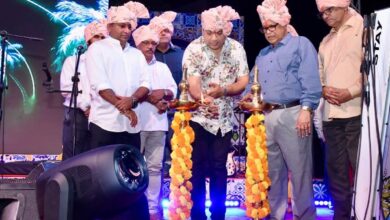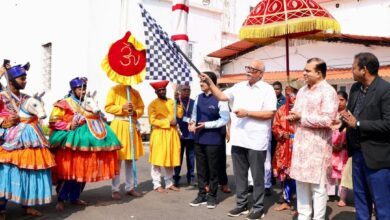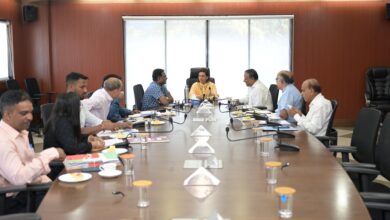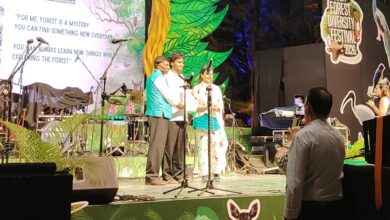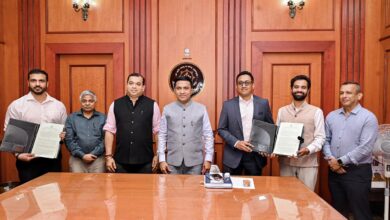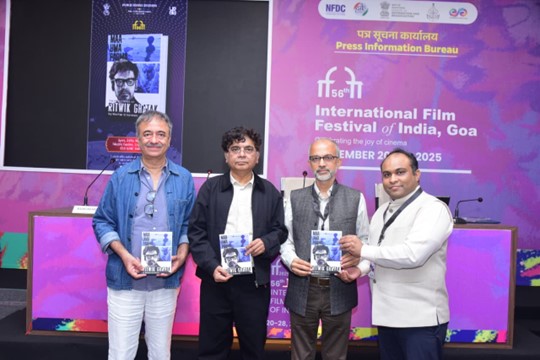
Cinema, Memory and Legacy Converge as Curtains Lift on ‘Maa, Uma, Padma’
Kamran’s New Book Reclaims Ghatak’s Cinematic Brilliance at IFFI
DPD Adds a New Title to Its Growing Collection on Indian Cinema
24 November 2025: The spirit of cinematic remembrance filled the press conference hall at IFFI today as filmmaker and IIT Bombay professor Mazhar Kamran unveiled his new book, ‘Maa, Uma, Padma: The Epic Cinema of Ritwik Ghatak.’ The event opened on a solemn note, with dignitaries offering condolences on the passing of veteran actor Dharmendra, before shifting into a warm and insightful conversation honouring one of India’s most influential filmmakers, Ritwik Ghatak.
The book was formally released by Sh. Bhupendra Kainthola, Principal Director General, Directorate of Publication Division (DPD), Ministry of Information and Broadcasting. Celebrated filmmaker Rajkumar Hirani joined the conference, lending both camaraderie and gravitas to the occasion.
Sh. Kainthola elaborated on why DPD chose to publish ‘Maa, Uma, Padma’. He recalled the announcement made at WAVES Summit 2025, where the year was dedicated to commemorating five legendary film personalities marking their centenaries, Ghatak being among them. “DPD publishes books that are accessible and affordable to all. Kamran was happy to work with the vision, and everything aligned,” he shared. He also highlighted that the book’s cover was designed by Kamran’s own students from IIT Bombay, a creative collaboration that delighted the author.
Kamran spoke with palpable emotion about witnessing his words take shape in the form of a book. He said he wrote every word out of conviction, accepting that readers may agree with him at times and diverge at others. Reflecting on Ghatak’s position in Indian cinema, Kamran noted that although he is celebrated today, Ghatak lived on the margins, often struggling to get his films made despite the power of his vision. “Whenever we think of Indian cinema in time, one of Ghatak’s films will always be there,” claimed Kamran.
Kamran also addressed a misconception about Ghatak’s lack of formal film school training. “He learned rigorously,” Kamran said, citing Ghatak’s early writing, his collaborations with greats of his time, and his deep engagement with works of Eisenstein and Stanislavski. He recalled that Ghatak even taught briefly at FTII, a reminder that cinematic learning takes many forms.

The conversation soon moved to DPD’s broader initiative to promote books on Indian cinema. Sh. Kainthola shared that 12 books have been brought out in recent years, including the recent volume on Phalke Award winners and an upcoming compilation of articles from FTII’s Lensight journal, now being published in Hindi to widen accessibility. He also announced five more works underway, touching names such as Lakshmikant-Pyarelal and Lata Mangeshkar.
The discussion eventually flowed into Ghatak’s recurring feminine presence: the Maa, Uma, and Padma of Kamran’s title. He described Ghatak’s understanding of motherhood as the most profound embodiment of the feminine, intertwined with the river Padma, an eternal symbol in his cinema.
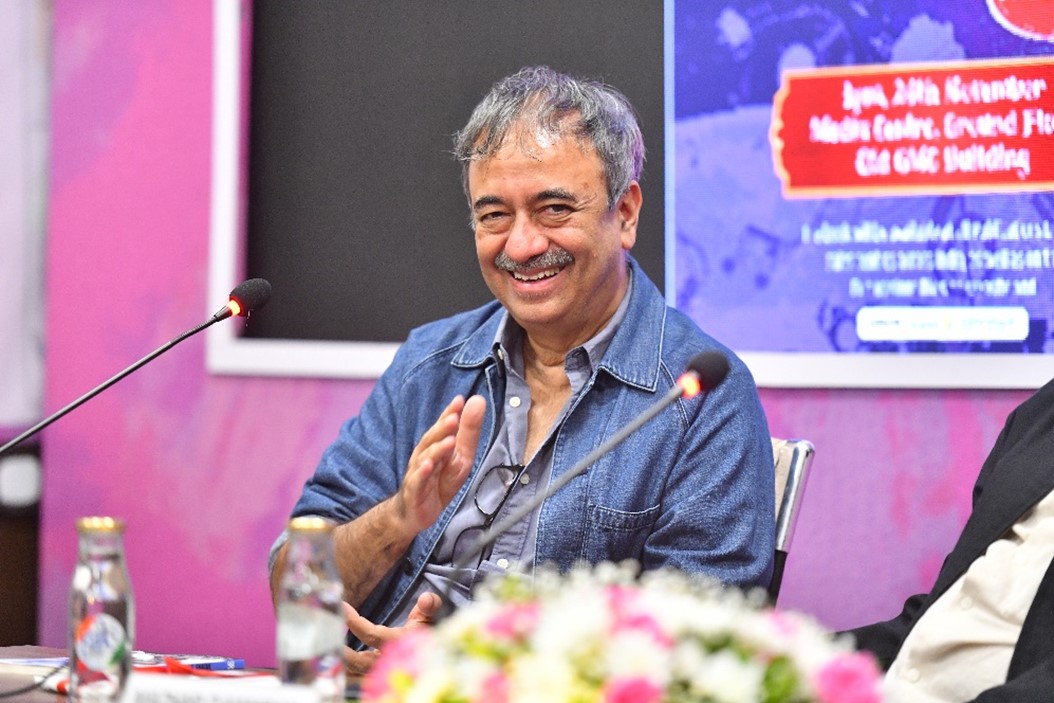
The conference, woven with reflection, admiration, and rediscovery, stood as both a tribute to Ritwik Ghatak’s artistic legacy and a celebration of Kamran’s deeply researched, heartfelt work. ‘Maa, Uma, Padma’ promises to enrich the discourse on Indian cinema, accessible, insightful, and driven by a passion equal to its subject.



